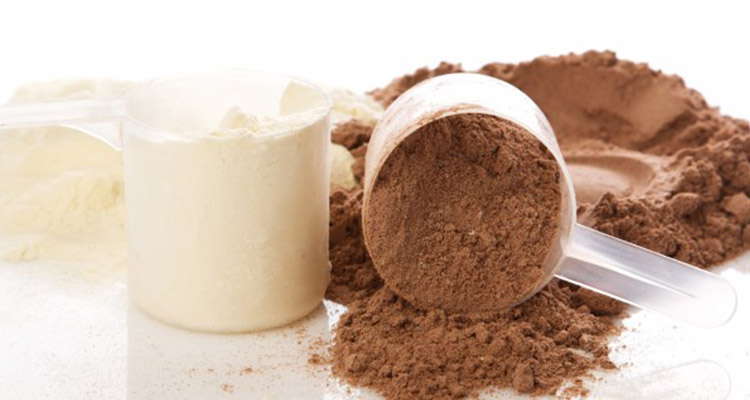
Diabetes is fast becoming one of the major illnesses ravaging the world today. It is quite serious in most cases, and early and proper care remains one of the most effective ways of preventing its aggravation.
Understanding the causes of diabetes, the different types, and its major symptoms can help patients better manage the illness. These are the topics that this article will discuss to help you better understand the disease.
It’ll also share the most effective lifestyle changes that help diabetes patients cope and live healthier lives.
Types of Diabetes
Diabetes is a disease that stems from blood sugar or blood glucose in the body getting too high. Blood glucose is the body’s main energy source, derived from the foods we eat. The body produces a hormone known as insulin in the pancreas to break down this glucose from food into the cells in the body.
Unfortunately, for certain people the body may not make enough or any insulin to achieve this. This means the glucose stays in the blood and does not reach the cells to give your body energy.
Having too much glucose in the blood can also cause major health problems.
There are different types of diabetes. Type 1 and Type 2 are the most common. Both of them have no cure but can be managed. Here’s what you need to know about them:
Type 1 Diabetes
This occurs when the body does not make insulin at all. It’s mostly common in children and young adults (known as Juvenile diabetes), but anybody of any age can also have it.
What happens, in this case, is that when the body tries to make insulin in the pancreas, the immune system fights and destroys the cells. If you have Type 1 diabetes, you need to take insulin every day to survive.
Type 2 Diabetes
This is the most common type of diabetes, also known as Diabetes Mellitus. In this case, what happens is that your body does not produce or use enough insulin. This type of diabetes can be developed at any age but is most common in older people.
Other types of diabetes include gestational diabetes that develops in some women when pregnant. It often resolves when the baby is born. It, however, puts you at a greater risk of developing it when you’re older. Monogenic diabetes is another type of diabetes that is inherited genetically.
Most Common Symptoms of Diabetes
There are varied symptoms of diabetes, depending on how high the blood sugar level is. Some people may not develop any symptoms, like Type 2 diabetes. Type 1 diabetes, however, may present in more severe and sudden symptoms.
Type 1 Diabetes Symptoms
These are the most common symptoms of Type 1 diabetes. Some of them are more serious than others.
- Abdominal pain
- Infections in the genitourinary system and skin
- Visual impairment
- Bed-wetting frequently
- Strong thirst
- Weakness
- Syndrome of diabetic foot
- Dry mouth/nausea
- Constant hunger
Type 2 Diabetes Symptoms
Type 2 diabetes symptoms can go undetected for years because they are mild and unnoticeable. Here are the most common symptoms of diabetes based on crowdsourced reports.
- Fatigue
- Unexplainable thirst
- Frequent urination
- Blurry vision
- Weight loss
- Dizziness
- Headaches
- Weight gain
- Sweating
- Mood swings
Best Lifestyle Changes for Diabetic Patients
Choosing a healthy lifestyle can help you better manage your diabetes. These are the three helpful lifestyle changes that can give you the edge over your diabetes:
Manage Your Weight
One of the most effective ways to keep your diabetes in check is to avoid getting overweight. It becomes a lot harder to manage diabetes when you’re also struggling with weight.
Being physically active keeps you feeling better and improves your body’s sensitivity to insulin. This helps your blood sugar levels become more stable. You can also ease your body’s stress making you less sensitive to insulin through healthy exercises.
If you’re having trouble getting started with keeping active or exercising, then you can take it slowly and build up over time.
Keep active for about 30 minutes four times a day for the best result. You can increase this to up to seven times as you go on. You can switch up your exercises often to help you keep moving without getting bored.
Eat a Healthy, Balanced Diet
Your diet has a lot to do with your health because it helps regulate your blood sugar and keeps you from gaining weight. So, as you plan your meals, always ensure you have a healthy balanced diet on your plate.
This means you need to cut down on junk and sugary foods that can spike your blood glucose levels. Some good dietary choices to make include filling half of your plate with vegetables (non-starchy ones). These include cucumber, asparagus, broccoli, carrot, tomatoes, squashes, etc.
Also include beans, lean meat, nuts, poultry, sweet potatoes, tofu and more. Work with a nutritionist to help you create a meal plan that provides you with the best nutrients for your medical conditions.
Quit Unhealthy Habits – Smoking, Alcohol
If you want to control your blood sugar levels better, you need to quit smoking or drinking addictions. They put you at risk of many complications and more serious health problems.
Some of these include heart and kidney diseases, blindness, ulcers that can lead to amputation of legs or feet, nerve damage, and so much more. Alcohol can also drop blood sugar levels to dangerous levels that cause dizziness and disorientation.
It also puts your body under a lot of stress, and your liver works harder trying to remove alcohol from the blood instead of regulating your blood sugar.
Try taking a healthier alternative like water or switch to a lighter alternative like wine spritzers or light beer if you must drink at all.
Final Thoughts
To stay on top of your health, it’s important to look out for signs and symptoms that may point to diabetes. It’s a serious condition and should be treated as such.
If you’ve been diagnosed with diabetes, sticking to the three best lifestyle changes listed above will help you cope better and enjoy a healthier life.
-Terry Asher
Terry Asher
Latest posts by Terry Asher (see all)
- Better Family – Product Review Liquid Daily 2 oz - Dec 16, 2024
- Post-Workout Recovery: The Key to Optimal Performance - Nov 25, 2024
- Pre-Workout Supplements – Everything You Need To Know - Nov 18, 2024












[…] Source link […]
[…] Source link […]
[…] Source link […]